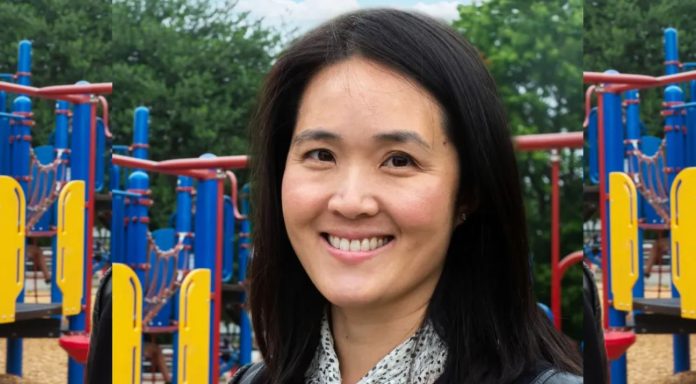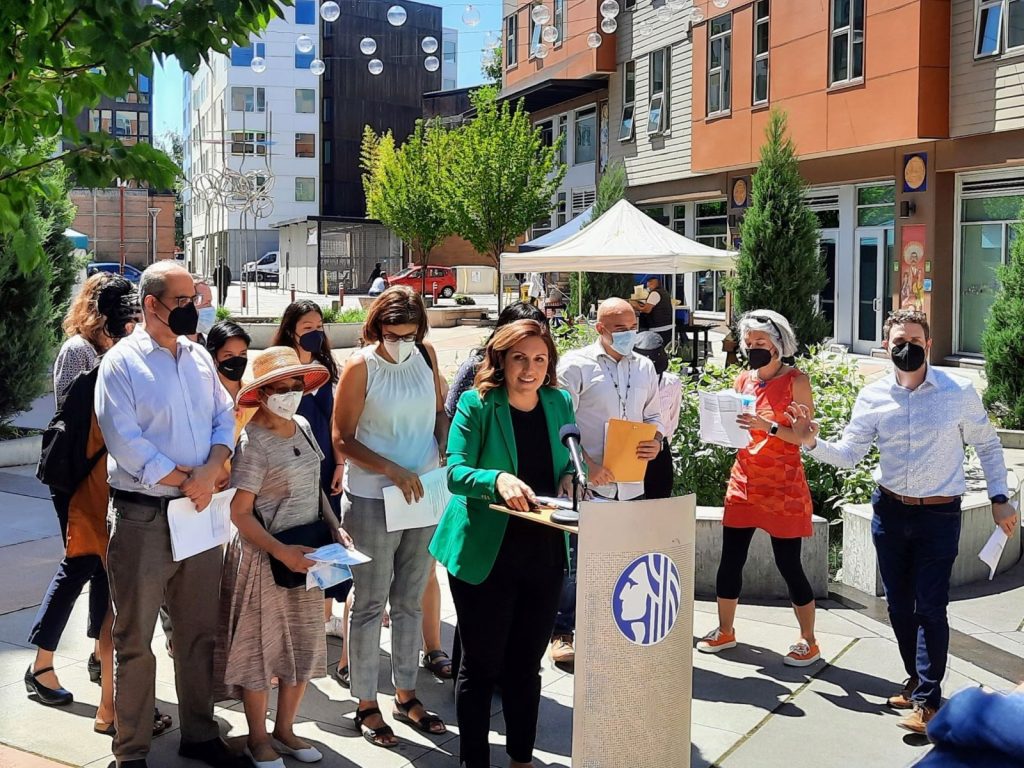
Vivian Song is the candidate that fits the mold and the moment. Council would be wise to appoint her.
On Thursday evening, eight candidates filed into city hall to make their case as to why they deserve appointment to an at-large position on the Seattle City Council. The one that shone brightest was Vivian Song, nominated by Council powerbroker Dan Strauss. Song’s record of public service far exceeds any of her competitors.
This is particularly stark when comparing Song to her strongest challenger, Tanya Woo. Song highlighted her years elected to the Seattle Public Schools Board, where she managed a $1.2 billion budget. Woo, on the other hand, admitted that she had never even voted in a local election before 2021.
In addition to her extensive experience, Song differentiated herself by embracing an aggressively pro-housing agenda. While, thankfully, almost everyone on the panel agreed that our growing city needs many more homes, almost all but Song hesitated when it came to ending exclusionary zoning. A relic of Jim Crow, exclusionary zoning was designed to keep neighborhoods unaffordable for people of color by banning more affordable apartments and condos in favor of single-family houses. The continuing effects still segregate our city and scar many neighborhoods.
Several panelists fretted that upzoning and allowing people to sell their land to housing providers would jeopardize generational wealth. Many, including Woo, insinuated or outright described upzoning as a burden levied on neighborhoods. In the November election that Woo lost, she was the only council candidate in all seven races to call for down-zoning, equating new housing with gentrification. This is far to the right of the Biden administration’s position. The more than 75% of Seattleites who voted for Biden should have those views represented.

In reality, new housing is the last-ditch effort to stop displacement of current residents in an area that has already been gentrifying long before building plans are even considered. If you don’t build enough housing for new residents to come in, they will displace the current ones. If you own a home, upzoning increases your property value. If you have rent, upzoning lowers it.
Song questioned why only current homeowners should be able to build generational wealth. Even the “winners” in our current system want a healthy city where their children can aspire to live as they transition to adulthood. If the next generation can’t find places to live, what’s the point of generational wealth? It should not be built on the back of housing scarcity, but abundance. Especially since experts have shown that housing scarcity increases homelessness.
If we want everyone to have housing opportunity, the answer is to allow building housing of every type everywhere. Song seemed to be the only one to fight for the notion that giving more people this chance across the city is not a burden, but a tool in lifting the most disenfranchised into the middle class. This chance doesn’t come without accepting that we must allow ourselves to upzone. We must reject the “Not In My Backyard” mentality and allow ourselves to grow.
Now this council stands at a crossroads. As councilmembers develop the new comprehensive plan for Seattle, they must decide if we take this problem seriously — or further divide Seattle between the haves and the have-nots and kick the can down the road. Self-proclaimed urbanists and housing advocates on the council should appoint accordingly.
Email council@seattle.gov or call your councilmember and tell them to appoint Song. It’s time to build.
Disclosure: Vivian Song’s husband, Ben Maritz, serves on The Urbanist’s board of directors. The Urbanist has not endorsed a candidate in the active Seat 8 appointment process, and its board of directors is not responsible for endorsements.

Leonard Harrison Jerome (Guest Contributor)
Leonard Harrison Jerome is a manufacturing engineer in the local aerospace industry, with a mechanical engineering degree from the University of Washington. Jerome has been a local political campaign “super volunteer” and has long held an interest in civil and urbanist policy.

